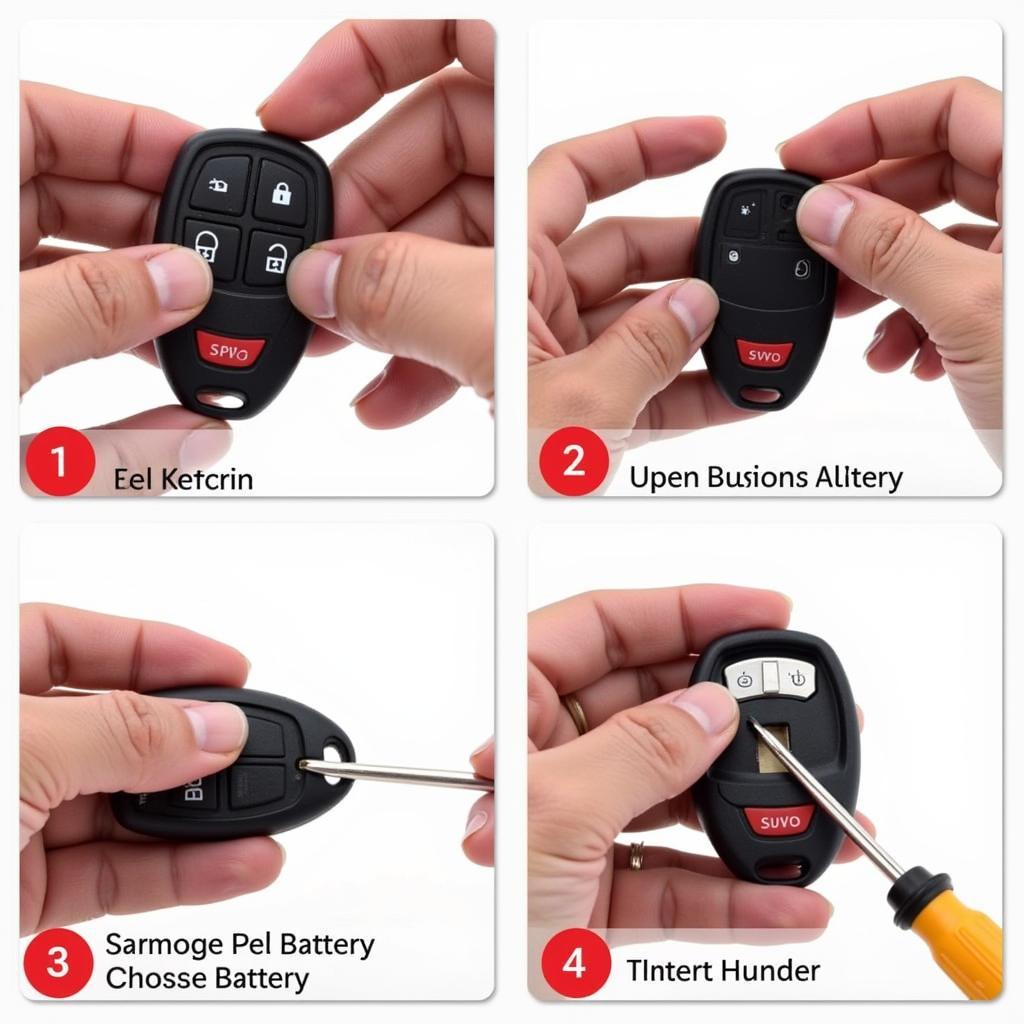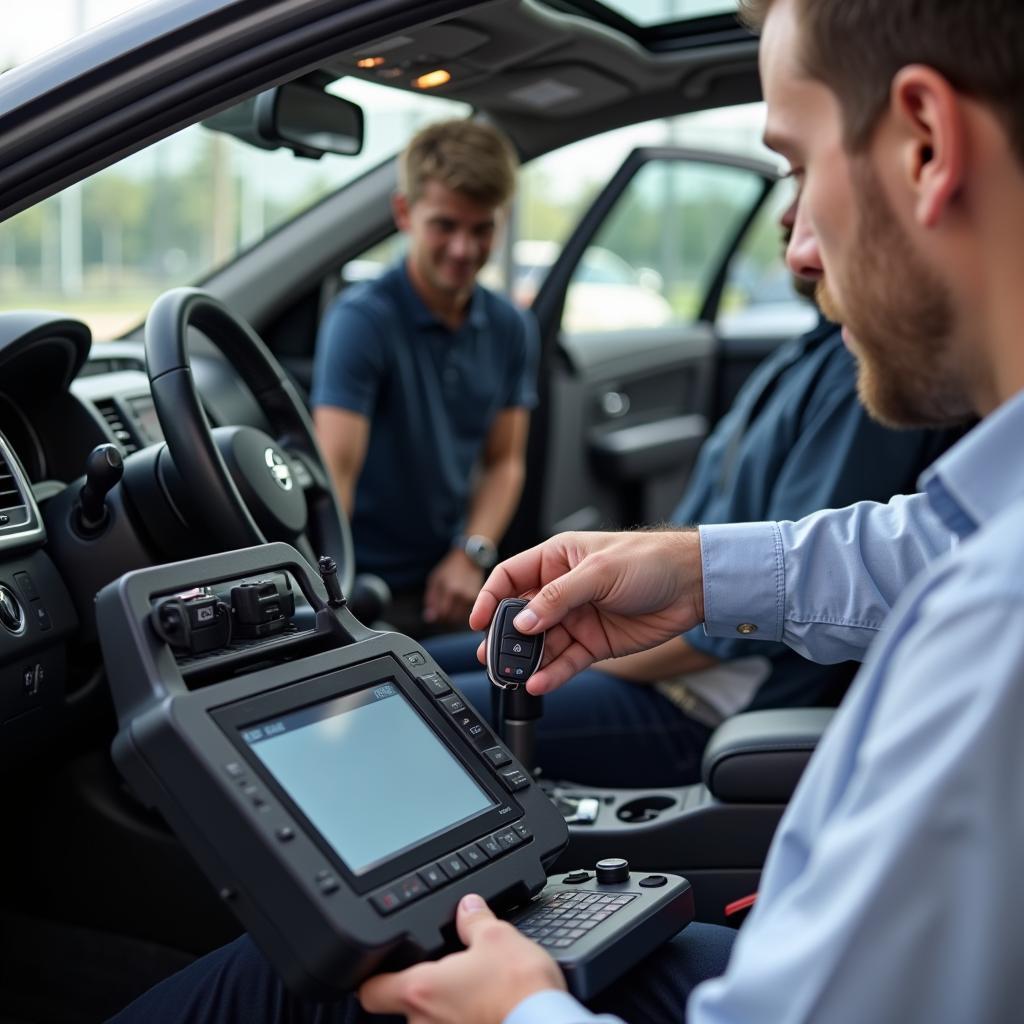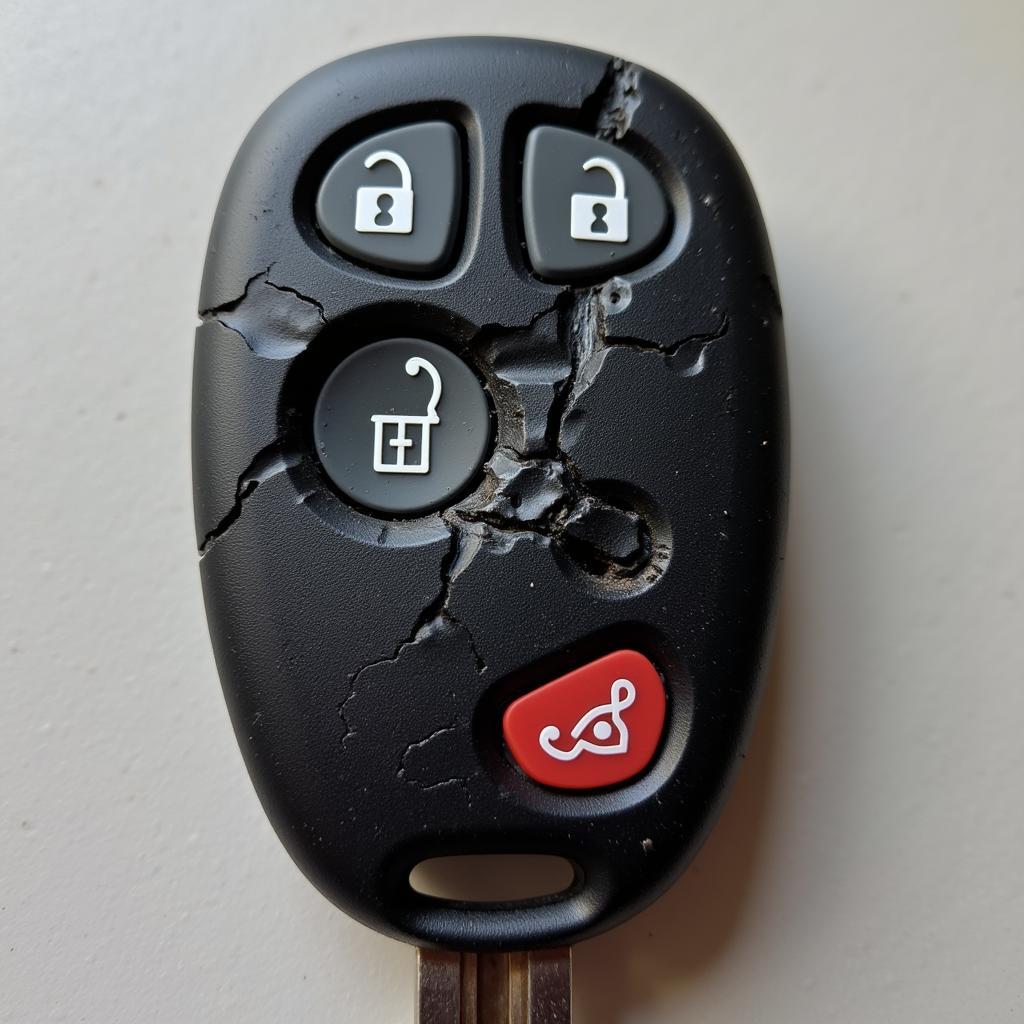Experiencing a dead key fob on your 2017 Nissan Altima? Don’t panic just yet! This is a surprisingly common problem, and often, the fix is simpler than you think. In this article, we’ll break down the common causes behind a malfunctioning 2017 Nissan Altima key fob and guide you through troubleshooting steps to get you back on the road quickly.
Why is My 2017 Nissan Altima Key Fob Not Working?
Several culprits could be responsible for your key fob woes. Let’s examine the most frequent offenders:
- Dead Battery: The most common cause of key fob failure is simply a depleted battery. Over time, the battery within the key fob loses its charge.
- Key Fob Programming Issues: Sometimes, the issue isn’t the battery itself, but rather a disruption in the communication between your key fob and your car’s system. This could be due to a need for reprogramming.
- Internal Key Fob Damage: Physical damage to the key fob, such as water damage from an accidental drop in a puddle or impact damage from being stepped on, can also cause malfunctions.
- Antenna Problems: In less common instances, the problem might not be with your key fob at all. A faulty antenna within your car’s system, responsible for receiving the signal from your key fob, could be the root cause.
Troubleshooting Your 2017 Nissan Altima Key Fob
Now that we’ve covered the potential culprits, let’s dive into some solutions. Here’s a step-by-step guide to help you troubleshoot the issue:
-
Replace the Key Fob Battery: This is the easiest fix and the best place to start. 2017 Nissan Altima key fob batteries are widely available at auto parts stores and are easy to replace yourself.
- Refer to your owner’s manual for instructions or look for a small release button or notch on the back of your key fob.
- Carefully pry open the key fob to access the battery compartment.
- Note the battery type (usually a CR2025 or CR2032) and replace it with a fresh one, making sure to align the positive and negative terminals correctly.
-
Reprogram Your Key Fob: If a new battery doesn’t resolve the issue, your key fob might need to be reprogrammed. While you can find DIY reprogramming instructions online or in your owner’s manual, this process can sometimes be tricky.
- Consider taking your vehicle and key fob to a qualified Nissan dealership or an auto locksmith specializing in key fob programming to ensure the process is done correctly.
 Replacing the battery in a 2017 Nissan Altima key fob
Replacing the battery in a 2017 Nissan Altima key fob
-
Inspect the Key Fob for Damage: Give your key fob a close examination. Look for any cracks, dents, or signs of water damage. If you find any significant damage, it’s likely that the internal components are compromised, and replacement is your best option.
-
Check the Car Battery: A weak or dead car battery can sometimes interfere with the key fob’s ability to communicate with the car. If you’re also experiencing problems starting your car or notice dim headlights, this could be the culprit.
-
Contact a Professional: If you’ve exhausted all DIY options, it’s time to call in the experts. A Nissan dealership or a reputable auto locksmith can diagnose the problem and provide a solution. They have the tools and expertise to pinpoint the cause, whether it’s a faulty antenna in your car, a deeply buried programming issue, or a more complex electrical problem.
 Programming a Nissan Altima key fob at a dealership
Programming a Nissan Altima key fob at a dealership
Preventing Future Key Fob Problems
While some key fob issues are unavoidable, here are some proactive measures you can take:
- Regular Battery Replacement: Don’t wait for your key fob battery to die completely. Consider replacing it every 2-3 years as preventative maintenance.
- Protect Your Key Fob: Invest in a protective case to shield your key fob from impact, scratches, and moisture.
- Be Mindful of Where You Place It: Avoid placing your key fob near electronic devices that emit strong electromagnetic fields, as this can interfere with its signal and potentially drain the battery faster.
A malfunctioning key fob can be a major inconvenience, but understanding the common causes and solutions can save you time, money, and frustration. By following the troubleshooting tips outlined in this article, you’ll be well-equipped to handle a 2017 Nissan Altima Key Fob Not Working and get back to enjoying your ride.
Expert Insight:
“Many people overlook the simple fix of a battery replacement when their key fob acts up,” says John Smith, Senior Automotive Technician at ABC Auto Repair. “It’s always the first thing we check, and more often than not, that’s all it takes.”
 A damaged Nissan Altima key fob
A damaged Nissan Altima key fob
Remember: When in doubt, always consult a professional. Attempting complex repairs yourself could potentially worsen the problem or even void your car’s warranty.
FAQs
Q: How much does it cost to replace a 2017 Nissan Altima key fob?
A: Replacing a 2017 Nissan Altima key fob can vary in price depending on where you go and whether you require programming. Dealerships tend to be more expensive than auto locksmiths. On average, you can expect to pay between $150-$300 for a new key fob and programming.
Q: Can I drive my 2017 Nissan Altima with a dead key fob battery?
A: Yes, but there are limitations. If your key fob battery is completely dead, you can usually start your car by using the hidden mechanical key (located within the key fob) to unlock the driver’s side door and then holding the key fob close to the start button to allow for signal recognition. However, keep in mind that you’ll need a functioning key fob battery for remote locking/unlocking and other features.
Q: My key fob is physically damaged. Can it be repaired?
A: While minor damage might be repairable, significant damage, like a cracked circuit board or water damage, often warrants a complete replacement. A qualified technician can assess the damage and advise on the best course of action.
You might also be interested in:
- 2014 nissan titan key fob programming
- 2014 nissan rogue key fob programming
- 2016 nissan altima key fob battery
Need more help with your Nissan Key Fob?
Don’t hesitate to reach out to our expert team via WhatsApp: +1(641)206-8880 or email us at [email protected]. We’re available 24/7 to assist you!

Leave a Reply